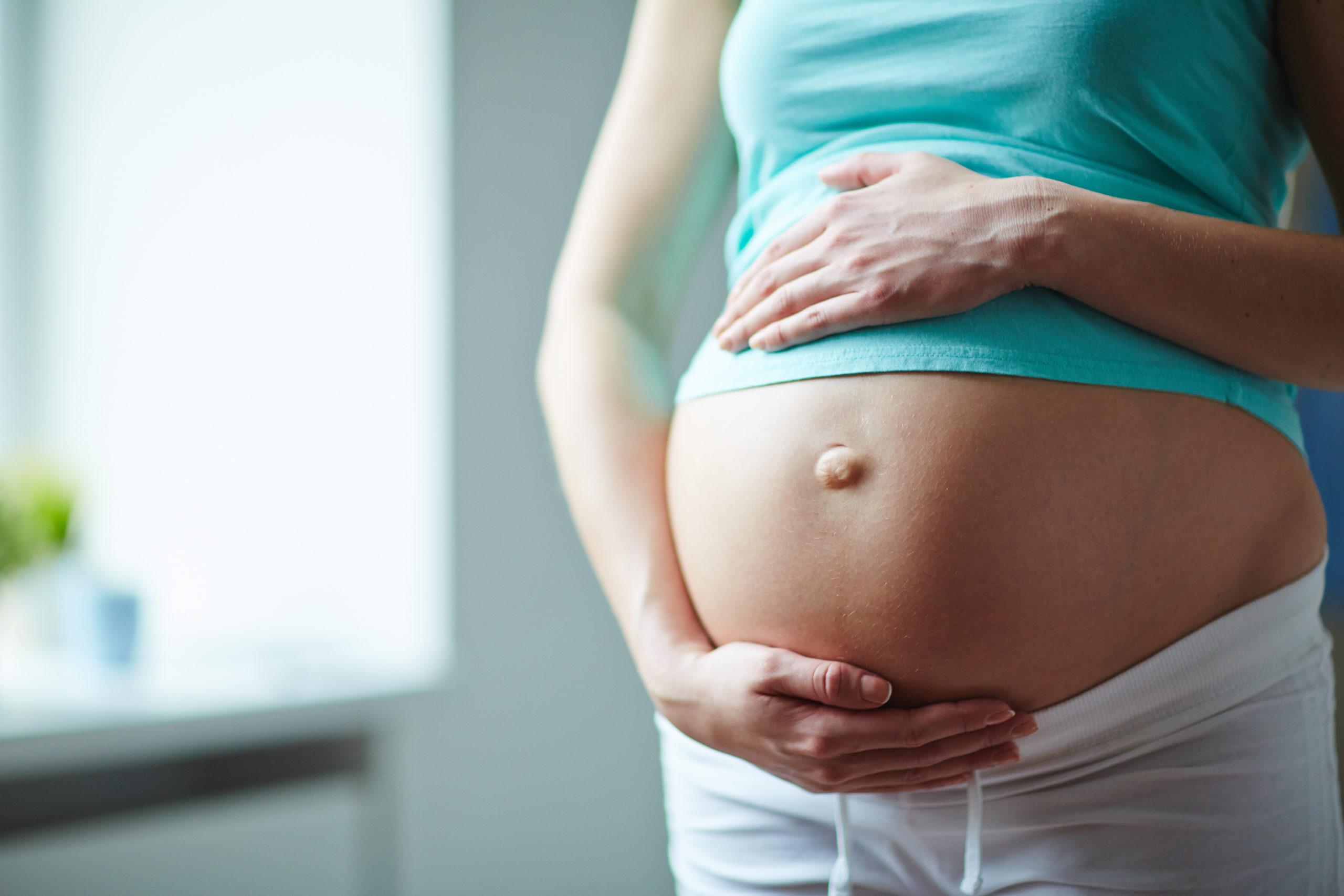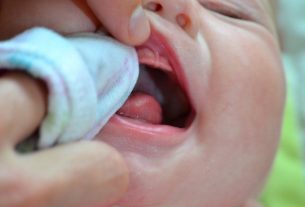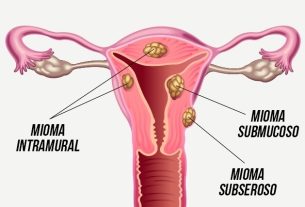Navel pain during pregnancy can have several causes. Understand why this happens and some treatments to alleviate the symptoms.
During pregnancy, many people may experience different types of symptoms, such as shortness of breath and gum sensitivity. However, at the same time, many people also have a peaceful pregnancy, without feeling anything other than a characteristic tiredness, due to carrying extra weight. These symptoms vary from person to person, meaning it is not easy to pinpoint what someone will feel.
However, a slightly different symptom that may affect some pregnant people is pain in the navel. This discomfort in the central region is more common in the second and third trimester of pregnancy. But what is the navel? Well, the navel is nothing more than the scar left by the natural fall of the umbilical cord. This place has no function for adults, but it is the vital point for all babies inside the uterus.
Therefore, pain in the navel during pregnancy is nothing more than pain in an old scar. Next, we will talk about the reasons that can cause this discomfort in the scar, and some homemade recipes that can help alleviate the pain. But, first of all, it’s worth pointing out that this pain will probably go away once the baby is born, so don’t worry!
Navel pain during pregnancy: reasons
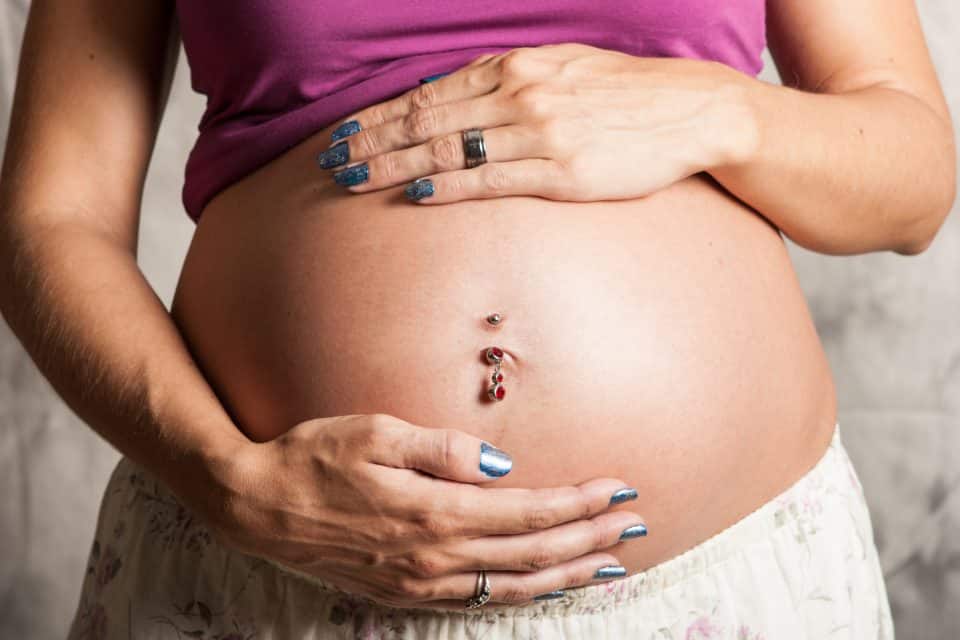
Belly button pain during pregnancy can be caused by a few factors. However, it is mainly caused by the baby’s growth, therefore, it is more common in the final stages of pregnancy. Furthermore, as the uterus and baby grow, the belly grows naturally. Therefore, the scar called the navel also stretches, which ends up causing pain in the region.
Another common cause of belly button pain during pregnancy is piercing. The accessory already causes natural discomfort, as it is a hole in your belly. Additionally, the piercing can take up to a year to heal completely. Furthermore, friction with clothing and your belly can cause discomfort and pain, meaning it is recommended that you remove the accessory if you become pregnant and the area has not completely healed. However, if you are already feeling pain and believe that the area is infected, it is better to go to the doctor instead of removing it at home.
As previously stated, a pregnant woman’s uterus grows exponentially during pregnancy. Therefore, this unexpected growth ends up causing pressure in the abdomen and navel region. What this pressure can end up causing, for people who have their navel “in”, is causing the navel to go “out”. In other words, the navel can “burst”, causing discomfort and pain due to the change in its natural state.
Serious reasons
The reasons mentioned above will probably disappear once the baby is born. As the pressure will be removed, as the uterus will return to its natural size, the pressure around the belly button will also disappear. Therefore, there are some mild causes for this discomfort. However, there are some situations in which the discomfort may be more serious and require medical treatment.
The first of these more serious reasons is intestinal infection. If this is the reason for the discomfort, the pain felt in the navel area will be much more intense. Furthermore, the pain will also be accompanied by fever, nausea and vomiting. An intestinal infection during pregnancy requires medical monitoring, as it will be necessary to administer some medications to control pain and nausea.
The other most serious reason for belly button pain in pregnancy is umbilical hernia. If this is the reason for the pain during pregnancy, you will notice that the discomfort will not go away with the birth of the baby. Furthermore, every time physical effort is made, pain will appear. An umbilical hernia occurs because of uterine pressure, causing the intestine to enter the umbilical cavity. Therefore, the solution will come with surgery and medical monitoring.
Treatment
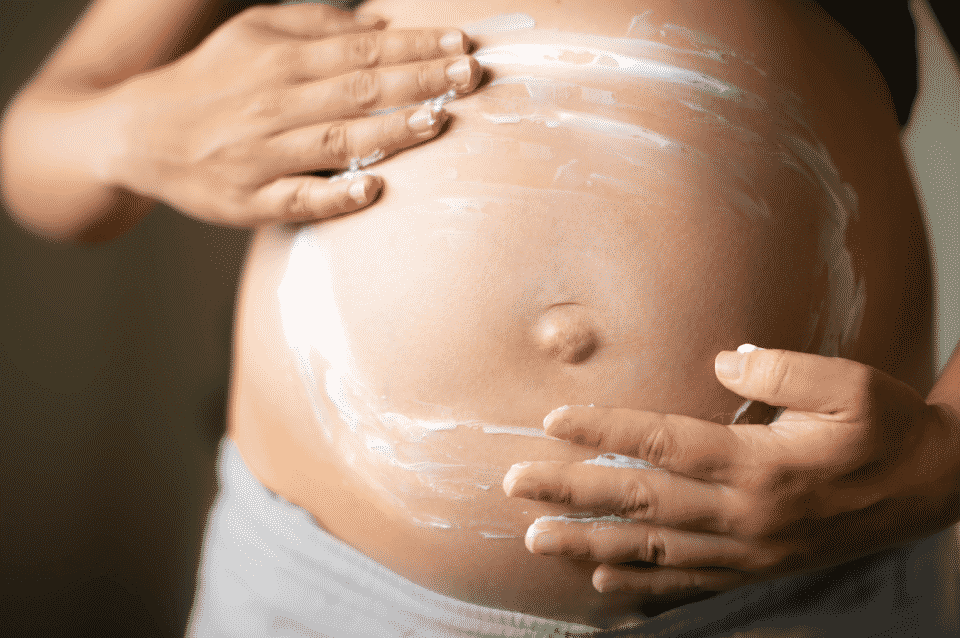
Belly button pain during pregnancy may come and go as the baby grows and the uterus expands. However, the pregnant person may even get used to the discomfort, as if it is not something serious, the pain will not be constant. However, one of the main recommendations to avoid pain is not to lift weights or make physical efforts frequently. Generally, the pain intensifies when physical exertion is necessary. To treat pain, it is recommended to relieve pressure on the area, that is:
- Sleep on your back or side;
- Do some type of activity in the water, such as hydrotherapy;
- Wear loose, cotton clothing to avoid friction with the navel;
- Apply moisturizers to prevent the area from drying out;
- Apply warm compresses to relieve discomfort;
- Local massages.
If the pain is felt intensely and frequently, even after the end of pregnancy, a medical consultation is recommended.
Navel pain during pregnancy

Of course, belly button pain doesn’t just happen to pregnant people, right? However, as with pregnant women, there are some simpler causes and some more aggressive ones. Among the simplest are constipation, that is, difficulty in having a bowel movement that can cause swelling in the region and consequent pain in the navel. Furthermore, umbilical hernia can also be a cause, as it doesn’t just happen to pregnant women.
Among the most serious causes are appendicitis and pancreatitis, which in most cases are resolved only with surgery. Crohn’s disease, which is a serious chronic gastrointestinal disease, also causes pain in the belly button and requires specialized treatment. In addition, ovarian cysts and intestinal inflammation can also cause belly button pain. It is recommended that you seek professional help.
Another common symptom during pregnancy is migraines, find out more here: Migraines during pregnancy: best ways to avoid the problem
Images: Pixabay

Sign up for our newsletter and stay up to date with exclusive news
that can transform your routine!
Warning: Undefined array key "title" in /home/storelat/public_html/wp-content/plugins/link-whisper-premium/templates/frontend/related-posts.php on line 12
Warning: Undefined array key "title_tag" in /home/storelat/public_html/wp-content/plugins/link-whisper-premium/templates/frontend/related-posts.php on line 13

